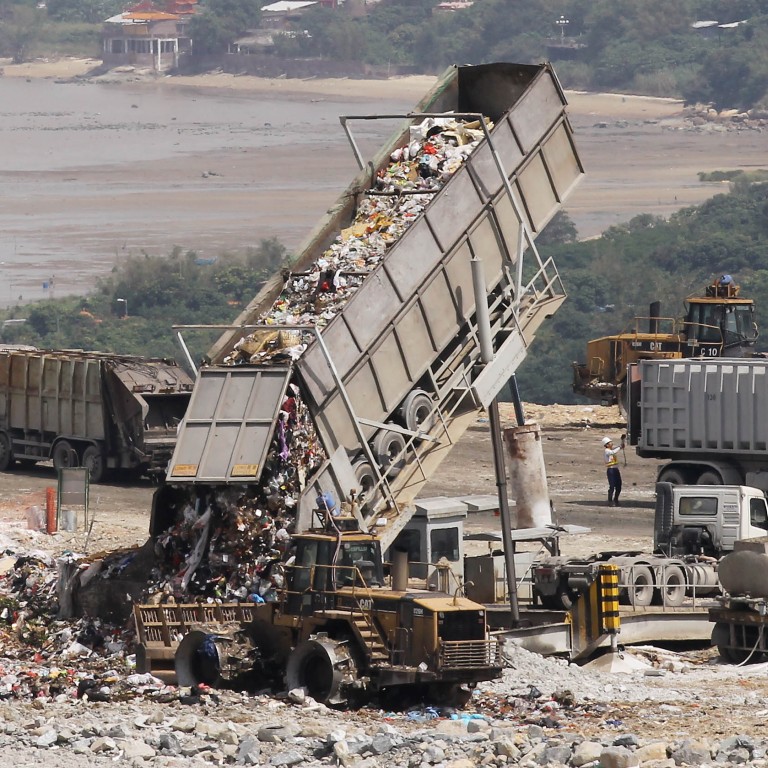
Debate over best method for waste levy
Green groups and building management firms cannot agree on whether fairness or efficiency is more important in imposing rubbish charges
Most green groups and property management firms support the idea of charging for waste, but the best way to tackle it is still up for debate, the Legislative Council's panel on environmental affairs heard yesterday.

Friends of the Earth senior environmental officer Francis Yeung Hoi-shan urged the government to implement pilot programmes at housing estates to test the charging schemes.
The Association of Property Management Companies' Dr Johnnie Chan Chi-kau said he also supported the "polluter pays" principle, but believed it was more efficient to attach the charges to buildings.
"In the long run, to resolve the problem of waste, we must reduce it at its source," Chan said. "But if charges are introduced, the process should be streamlined to reduce pressures on private management companies to increase management fees."
He said there was a risk of non-compliant households illegally discarding rubbish, causing the need for better security systems and monitoring, and thus, higher management fees.
But CO2 Feeds The World's Dr Robert Hanson argued that a waste charge was akin to a regressive tax on the middle class and those on lower incomes. "Punishing people [by making them pay] will only turn people off trying to reduce waste," he said.
Liberal Party lawmaker Frankie Yick Chi-ming said that as well as levying a municipal solid waste charge, the government should consider playing a bigger role in promoting the recycling industry and tackling food waste.

Wong has often stressed the importance of incineration to reduce pressure on landfills. But yesterday, he once again faced strong opposition from Islands district councillors and residents over the government's plan to build an incinerator in Shek Kwu Chau, near Cheung Chau. Opponents said it was a "political decision" to choose the Shek Kwu Chau site over Tsang Tsui Ash Lagoon in Tuen Mun.
Discovery Bay district councillor Amy Yeung Wing-sheung said the government made the U-turn only after rural strongman Lau Wong-fat voiced his opposition in 2008.
Consultancy reports commissioned by the government and published in 2008 and 2011 concluded that the Tuen Mun site had multiple technical and economic advantages over the Shek Kwu Chau one and caused less environmental damage. Wong said the decision was aimed at having "a balanced distribution of government infrastructure".

